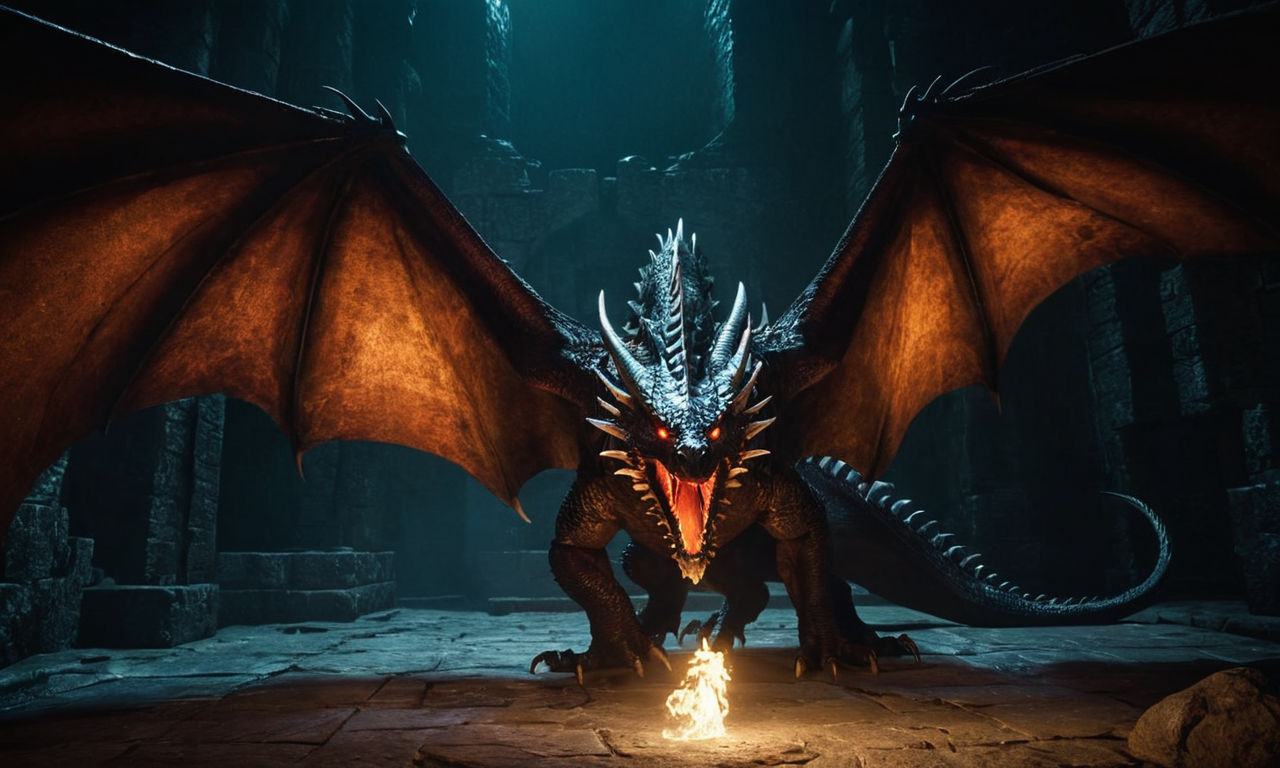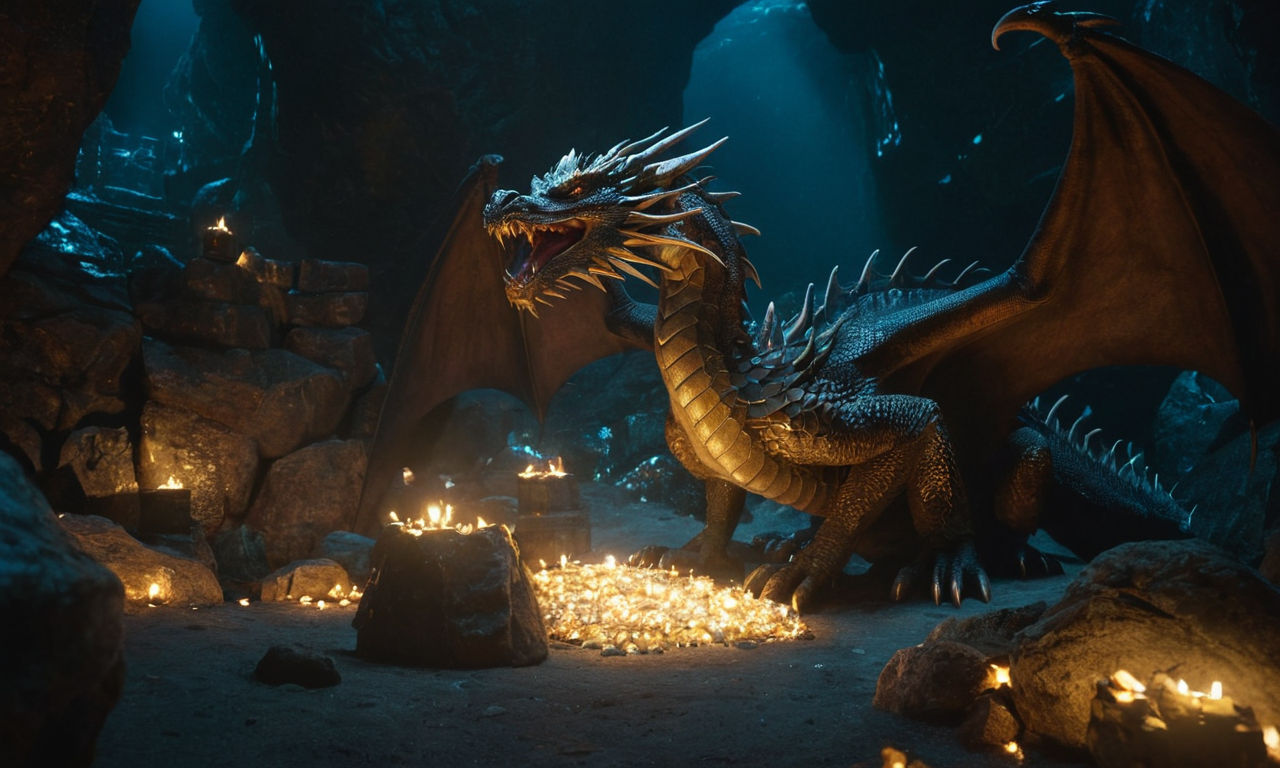Introduction
Boss fights have long been a staple in the world of gaming, marking significant milestones and testing players' skills, patience, and strategies. These epic encounters with formidable adversaries have become iconic moments that define the gaming experience. From their origins in tabletop role-playing games to their evolution in modern video games, the concept of "boss fights" holds a special place in the hearts of gamers around the globe. Let's embark on a journey to unravel the secrets behind why these challenging encounters are termed as 'boss fights' and their profound impact on gaming culture.
Understanding Boss Fights in Gaming
In the realm of gaming, a boss fight refers to a climactic battle against a powerful and often larger-than-life adversary. These encounters typically occur at the end of a level, dungeon, or storyline, serving as a final test of the player's skills and knowledge acquired throughout the game. The significance of boss fights lies not only in their challenge level but also in their ability to heighten the narrative tension, provide a sense of accomplishment upon completion, and offer memorable experiences that players cherish.
Boss fights are designed to push players to their limits, requiring them to adapt their strategies, exploit enemy weaknesses, and showcase their mastery of game mechanics. These battles often demand quick reflexes, critical thinking, and sometimes a bit of luck to emerge victorious. The adrenaline rush and satisfaction of overcoming a tough boss are what make these encounters so thrilling for gamers.
Origins of Boss Fights
The roots of boss fights can be traced back to tabletop role-playing games (RPGs) such as Dungeons & Dragons. In these early gaming sessions, players faced off against powerful adversaries controlled by the game master, who served as the storyteller and arbiter of the game world. These boss-like enemies, known for their immense strength and unique abilities, presented players with challenges that required teamwork, strategy, and creativity to defeat.
As video games gained popularity, the concept of boss fights transitioned into digital form, becoming a fundamental element of game design. Game developers drew inspiration from tabletop RPGs and adapted the idea of challenging boss encounters to suit the interactive and immersive nature of video games. The legacy of tabletop boss fights lives on in the digital realm, influencing game design and narrative structure in modern games.
Evolution of Boss Fights in Video Games
During the early days of video gaming, boss fights were relatively simplistic, often involving pattern-based gameplay and limited enemy behavior. However, as technology advanced and game development techniques became more sophisticated, boss fights evolved into elaborate set pieces with cinematic flair, intricate mechanics, and immersive storytelling elements.
Modern video games feature a diverse range of boss fight experiences, from colossal creatures that test players' combat skills to intricate puzzle bosses that challenge their problem-solving abilities. Boss fights have become not just a test of strength, but also a platform for creative game design, artistic expression, and memorable storytelling moments that leave a lasting impact on players.

Whether facing off against a towering behemoth, a cunning mastermind, or a relentless horde of enemies, the essence of boss fights remains constant – a thrilling, challenging, and rewarding experience that captures the essence of gaming at its finest. Through the evolution of boss fights, gaming has redefined what it means to confront a formidable adversary in a virtual world, shaping the way players interact with challenges and narratives in video games today.
Role of Boss Fights in Gaming Experience
Boss fights are pivotal moments in gaming that significantly impact player engagement and game progression. These encounters often serve as climactic challenges that test the skills and strategies players have developed throughout the game. Here are some key points highlighting the role of boss fights in enhancing the overall gaming experience:
Challenge and Excitement: Boss fights provide players with a heightened sense of challenge and excitement. These battles typically require advanced tactics, quick reflexes, and a deep understanding of game mechanics to defeat powerful adversaries.
Narrative Progression: Boss fights often mark important milestones in the game's storyline. Defeating a boss may lead to plot advancements, character developments, or unlock new areas, adding depth to the narrative and motivating players to continue their journey.
Skill Development: Boss fights require players to adapt and improve their skills. Confronting tough opponents encourages players to master game mechanics, learn enemy patterns, and develop new strategies, fostering a sense of accomplishment as they overcome difficult obstacles.
Replay Value: Boss fights often offer a high level of replay value. Players may revisit these memorable encounters to attempt different strategies, explore alternative story outcomes, or challenge themselves to defeat the boss more efficiently, enhancing the longevity of the game.
In essence, boss fights serve as pivotal elements that not only test players' abilities but also contribute significantly to the immersive and rewarding gaming experience.
Decoding the Term 'Boss'
The term 'boss' in gaming has a rich history that dates back to the roots of tabletop role-playing games (RPGs). Here, we unravel the reasons behind using the term 'boss' to denote formidable adversaries in games:
Origins in RPGs: The concept of a 'boss' enemy originated from tabletop RPGs, where dungeon masters would design powerful creatures or characters to challenge the players at the end of a quest or dungeon. These encounters were often referred to as the "boss battle," symbolizing the ultimate test of the players' abilities.
Authority and Power: The term 'boss' carries connotations of authority, power, and leadership. In the context of gaming, a boss enemy is typically portrayed as a formidable figure with superior strength, unique abilities, and a crucial role in the game's narrative progression.
Distinctiveness and Recognition: Designating formidable adversaries as 'bosses' helps distinguish them from regular enemies within the game world. Players quickly recognize these unique opponents by their title, preparing themselves for a significant challenge ahead.
By decoding the term 'boss' and its origins in tabletop RPGs, we gain a deeper appreciation for the symbolic significance of these formidable adversaries in the gaming landscape.
Significance of Gaming Terminology
The terminology used in gaming plays a vital role in shaping the culture and experience of players. Understanding the significance of terms like 'boss' provides insights into the broader gaming community. Here are some key points highlighting the importance of gaming terminology:

Community Understanding: Shared gaming terminology such as 'boss' creates a sense of community among players. Gamers worldwide easily recognize and understand the term, fostering a sense of belonging and shared experiences within the gaming culture.
Symbolism and Immersion: Gaming terminology, including terms like 'boss,' adds to the immersion and storytelling aspects of games. These terms evoke specific emotions, set expectations, and contribute to the overall thematic coherence of the gaming experience.
Historical Context: Gaming terminology often reflects the historical evolution of the medium. Terms like 'boss' have roots in traditional gaming practices and have evolved over time, showcasing the ongoing development and innovation within the gaming industry.
By acknowledging the significance of gaming terminology like 'boss,' players can deepen their appreciation for the cultural nuances and shared language that define the gaming landscape.
Influence of Role-Playing Game Mechanics
Role-playing game mechanics have played a significant role in shaping the concept of boss fights and enhancing the overall gameplay experience. Let's explore how RPG elements have influenced the design and dynamics of boss encounters:
Progression and Leveling: RPG mechanics, such as character progression, leveling up, and acquiring new skills, often directly impact how players approach and overcome boss fights. The preparation involved in strengthening characters adds strategic depth to the encounter.
Strategic Depth: Role-playing games emphasize strategic decision-making and tactical combat, elements that are often integral to successfully defeating a boss. Players may need to consider party composition, equipment choices, and skill synergies to effectively challenge these powerful adversaries.
Character Development: Boss fights provide opportunities for character growth and development within RPGs. Conquering a challenging boss can be a significant milestone for the player's in-game persona, reinforcing the sense of progression and accomplishment.
Story Integration: RPG mechanics seamlessly integrate boss fights into the overarching storylines of games. These encounters are not only challenging gameplay segments but also narrative climaxes that contribute to the immersive storytelling experience unique to role-playing games.
Ultimately, the influence of role-playing game mechanics on boss fights highlights the interconnected relationship between gameplay, storytelling, and player agency in shaping memorable gaming experiences.
Key Elements of Boss Fights
Boss fights are pivotal components in the realm of gaming that elevate the overall player experience by adding complexity, challenge, and excitement to the gameplay. Understanding the primary keyword "boss in game definition" allows us to dissect the key elements that define and differentiate boss fights within various gaming genres. Here are some fundamental aspects that contribute to the essence of boss fights:
Formidable Adversaries: Bosses are characterized by their dominance, strength, and unique abilities, posing a significant challenge to players. Their size, appearance, and skills often set them apart from regular enemies in the game.
Strategic Gameplay: Boss fights often require players to strategize, analyze patterns, and adapt their tactics to overcome these formidable opponents. Players must use their skills and knowledge acquired throughout the game to devise successful strategies against the boss.
Unique Mechanics: Boss fights frequently introduce distinctive gameplay mechanics, such as special attacks, phases, and environmental hazards. These elements test the player's reflexes, decision-making abilities, and mastery of game mechanics.
Rewarding Progression: Successfully defeating a boss typically yields substantial rewards, such as powerful items, experience points, or story progression. This incentivizes players to engage with and master the challenges presented by boss encounters.
Emotional Impact: Boss fights often evoke strong emotions in players, ranging from frustration and tension to exhilaration and satisfaction. The intense nature of these encounters can leave a lasting impression on the player's overall gaming experience.
In essence, boss fights serve as climactic moments that require players to demonstrate skill, perseverance, and adaptability, while adding depth and excitement to the gaming narrative.
Strategies for Conquering Boss Fights

Conquering challenging boss fights requires a combination of skill, preparation, and strategic thinking. To help players navigate these intense encounters and emerge victorious, here are some effective strategies to consider:
Understanding the Boss:
Study Patterns: Analyze the boss's attack patterns, strengths, and weaknesses to develop a tailored strategy for the encounter.
Learn Cues: Pay attention to visual and audio cues that signal imminent attacks or phase changes to anticipate the boss's moves.
Preparation and Optimization:
Gear Up: Ensure your character is equipped with the appropriate weapons, armor, and items to maximize your combat effectiveness.
Level Up: Invest time in leveling up your character and acquiring new skills or abilities that may prove useful in the boss fight.
Adaptation and Persistence:
Trial and Error: Be prepared to experiment with different strategies and approaches, learning from each failed attempt to refine your tactics.
Stay Persistent: Maintain focus, stay calm under pressure, and persevere through challenging phases of the boss fight without getting discouraged.
Collaborative Play:
Teamwork: In multiplayer games, coordinate with teammates to synergize abilities and support each other in taking down the boss effectively.
Communication: Clear communication and coordination are key to executing synchronized strategies and maximizing your chances of success.
By implementing these strategies and approaching boss fights with a combination of skill, strategy, and adaptability, players can enhance their chances of conquering these formidable adversaries and progressing within the game world.
Conclusion
The essence of boss fights transcends mere gameplay mechanics, symbolizing pivotal moments of challenge, triumph, and narrative progression within the gaming landscape. From the roots of tabletop role-playing games to the immersive digital realms of modern video games, boss fights have evolved into iconic experiences that shape player engagement, skill development, and emotional investment.
In conclusion, boss fights stand as pillars of gaming culture, offering players a unique blend of challenge, reward, and storytelling that enriches the overall gaming experience. By unraveling the significance of boss fights and recognizing their role in influencing game design, player engagement, and community interactions, we gain a deeper appreciation for these epic encounters that continue to captivate players worldwide. As players venture forth to conquer new bosses and unravel fresh challenges, the legacy of boss fights remains an enduring testament to the essence of gaming itself.



